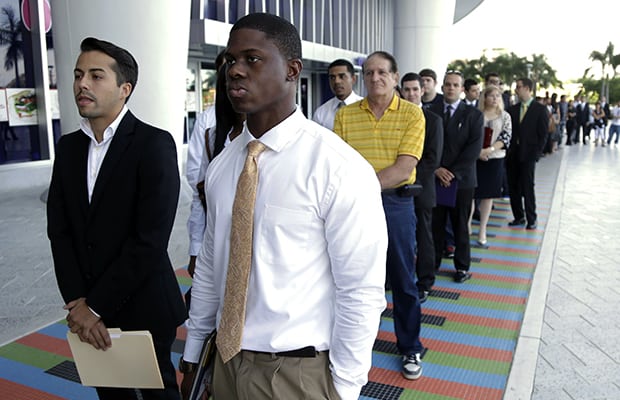While President Trump has boasted about how Black employment numbers increased dramatically under his presidency, the Black unemployment rate is still double that of whites.
And according to Gbenga Ajilore, a senior economist at the Center for American Progress, when it comes to talking about whether the economy is good for Black Americans, the conversation should start with opportunity — or relative lack thereof.
“You look at the criminal justice system,” Ajilore told Yahoo Finance (video above). “One of the biggest impacts on a labor market, especially for African-Americans, is mass incarceration.”
‘They’re always the ones impacted the hardest’
Although the Black imprisonment rate has fallen by one-third since 2006, there were still over 1,500 Black prisoners for every 100,000 Black adults at the end of 2018, according to a report from the Bureau of Justice Statistics (BJS).
Black men, in particular, are likely to be imprisoned at higher rates: There were 2,272 prisoners per 100,000 black men in 2018. In comparison, there were only 268 white prisoners for every 100,000 white adults in that same period, with white men imprisoned at a rate of 392 per 100,000.
In terms of how that related to opportunity, a report from the Prison Policy Initiative (PPI) found that formerly incarcerated people are unemployed at a rate of over 27%, “higher than the total U.S. employment rate during any historical period, including the Great Depression.”
Part of the problem has to do with the barriers put in place that prevent formerly incarcerated people from being hired, which PPI described as a “perpetual labor market punishment,” creating an endless cycle of release and poverty.
And because Black Americans are incarcerated at higher rates than any other racial groups, they’re more likely to encounter employment issues as a result of this.
Throughout the research “I’ve done over the last 50 years,” Ajilore said, the incaceration rate for Black men has “always been about double” that of White men. “The problem is that whenever you hit a recession, they are always the first fired but then the last hired. And so, that’s something that we’ve seen throughout the presidency and even beforehand.”
2020 is no different in that regard.
“If we look at what’s happened during this pandemic, and even if you think about the Black Lives Matter movement, it’s kind of a longstanding structural issue, that we have this structural racism where African-Americans have always had difficulties in the labor markets,” he added. “So whenever we have these business cycles, they’re always the ones impacted the hardest.”

